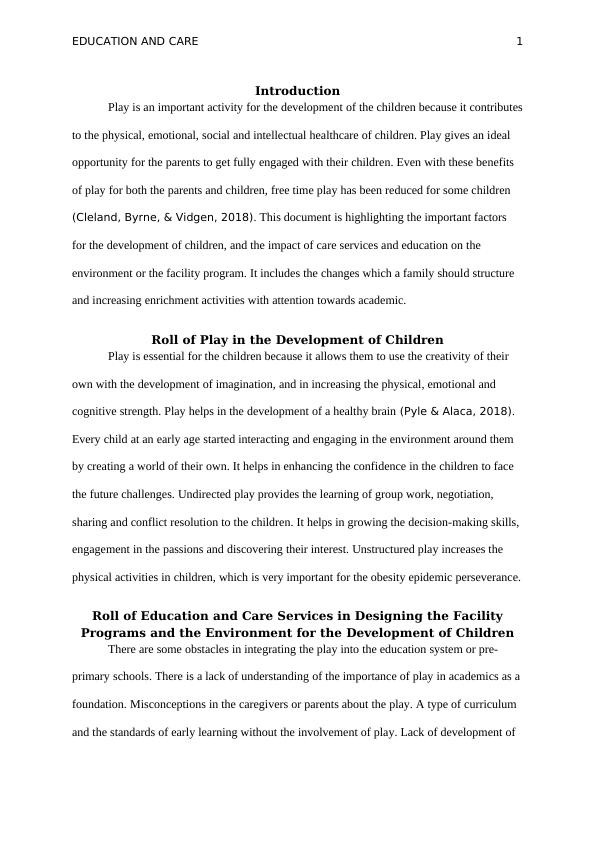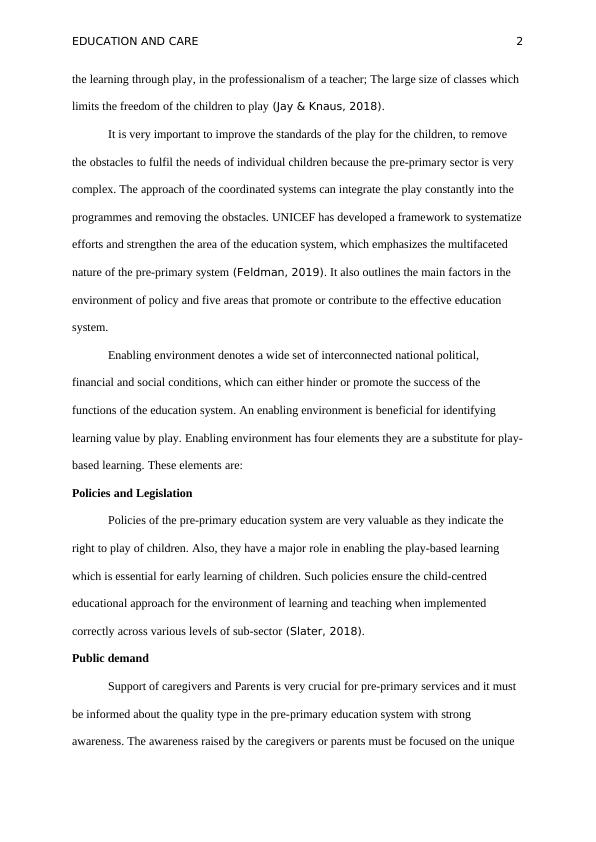Support Play and Learning for Children
Write a paper explaining the importance of play for children's development and how education and care services can design environments and programs to meet children's needs and support their learning.
7 Pages1539 Words481 Views
Added on 2022-11-17
About This Document
This document highlights the important factors for the development of children, and the impact of care services and education on the environment or the facility program. It includes the changes which a family should structure and increasing enrichment activities with attention towards academic.
Support Play and Learning for Children
Write a paper explaining the importance of play for children's development and how education and care services can design environments and programs to meet children's needs and support their learning.
Added on 2022-11-17
ShareRelated Documents
End of preview
Want to access all the pages? Upload your documents or become a member.
Factors Influencing Parental Decision to Choose Early Education Facilities for Their Children
|15
|4249
|470
Role of Family in Early Childhood Education and Care
|8
|2184
|350
Early Childhood Education and Care
|13
|3875
|149
Health & Wellbeing in Early Childhood
|11
|3747
|1
Literacy and Numeracy in the Education of Young Children
|13
|3464
|81
Design and Implement Curriculum for Children's Learning and Development
|49
|10520
|372



